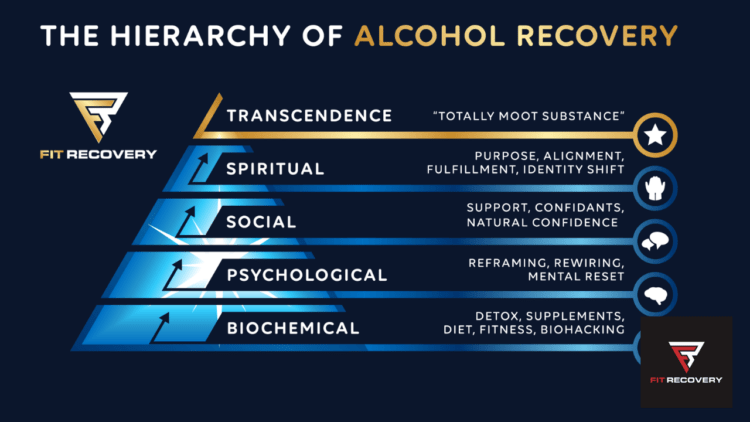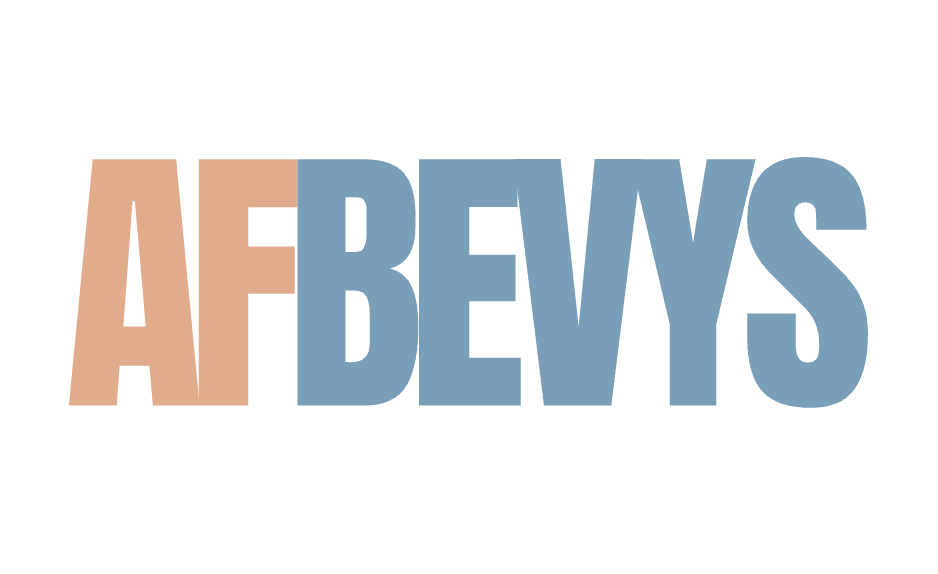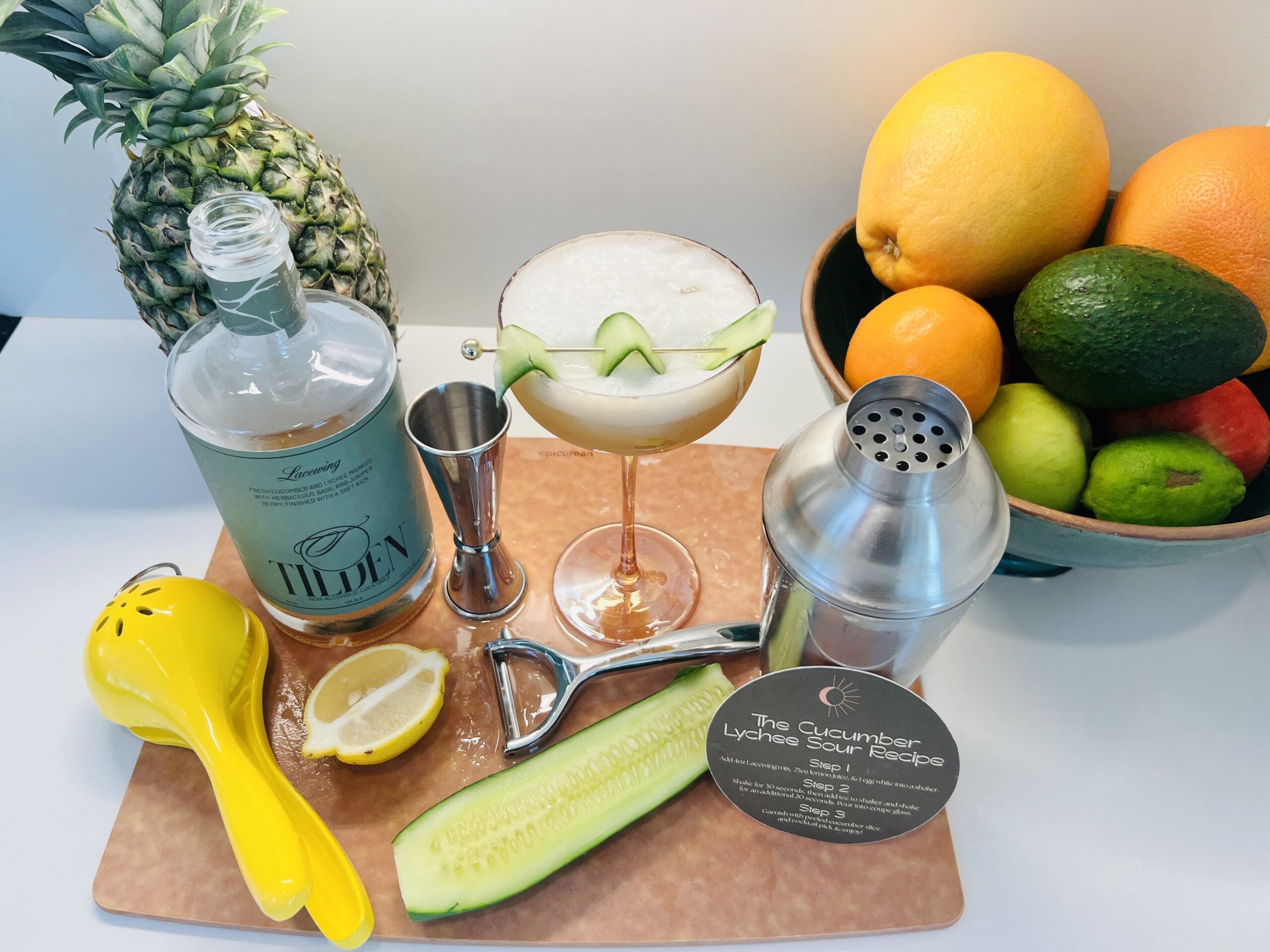While Alcoholics Anonymous (AA) works well for some people with alcohol abuse or addiction, it’s not an ideal option for everyone—particularly the sober curious who don’t necessarily struggle with alcohol use disorder.
Maybe you recognize potentially problematic drinking patterns (gray area drinking), wonder if you have alcohol use disorder (AUD), or just want to live a healthier life. You may be trying to stop drinking altogether or perhaps you want to cut back on your alcohol intake. You want to save money (or yourself from hangovers), sleep better, wake up more energized, or just enjoy having more clarity.
In cases like these, a program that’s designed to help people with addiction navigate the road to recovery might not feel quite right for you.
Fortunately for you, there are plenty of alternatives to AA programs. Here are six other options to explore to learn more about the sober curious movement and feel supported and empowered along your journey, whatever that uniquely looks like for you.
Contents
What is AA, Anyway?
Alcoholics Anonymous (AA) is “a fellowship of people who come together to solve their drinking problem.” It’s free and open to anyone.
Those who participate in AA follow a 12-step program aptly called “Twelve Steps” to obtain and sustain sobriety. There are 12 steps and 12 traditions.
The steps are considered spiritual principles that, when practiced as a way of life, “can expel the obsession to drink and enable the sufferer to recover from alcoholism.” Meanwhile, the traditions apply to the program, outlining how AA maintains unity and relates to the world at large.
AA’s 12-step program undoubtedly works well for some people. While there are a lot of conflicting numbers out there, one study finds that AA members are significantly more successful (60%) in achieving and maintaining sobriety than those who seek other interventions (and especially no intervention).
However, there’s also plenty of research that debunks the central tenets of AA. The debate mostly surrounds reliable evidence. (NPR did an interesting episode on why AA isn’t for everyone!)
In other words: AA certainly has its pitfalls.
What Are Some Drawbacks of AA?
The first step in AA is to admit you have a problem. Sure, it is absolutely necessary to admit you have a problem in order to solve the problem. But, for some people, admitting “powerlessness,” AA’s first step, can feel difficult and even demeaning.
If you’re someone who prefers to see the journey as empowering, rather than focusing on what may very well feel disempowering, this first step may not resonate.
Endless research suggests a strong correlation between low self-esteem and alcohol use disorder, so admitting powerlessness might exacerbate the problem.
If that’s the case for you, you may want to turn to alternatives to AA.
William Porter of Alcohol Explained put it perfectly:
“Drinking to [anesthetize] problems is the crux of problem drinking in many ways. If we feel weak, damaged, different and inferior to others, these are exactly the kinds of feelings that make us want to drink more.”
-William Porter
Porter also points out that “the real problem isn’t whether you’ve won or lost your battle with the demon drink,” but, rather, it’s with yourself.
Some addiction treatment programs, like AA, approach substance abuse by separating the person with the problem from the substance, which is considered the problem. But Porter believes that “when we are addicted to a chemical substance, our battle is not against that substance, but against ourselves.”
Porter isn’t alone in his thoughts. The Atlantic journalist Dan Saelinger also calls the faith-based 12-step program “irrational.” It requires you to believe in a higher power to get you on the other side of substance abuse. This can deter many people who prefer to join secular organizations for sobriety.
Annie Grace of This Naked Mind adds that “conversations about alcohol addiction—specifically, those that embrace the term ‘alcoholism’—are old and tired… [and] exclude millions of people struggling to accept, justify, understand, and control the way they consume alcohol.”
What Are Some Alternatives to AA?
Whether you’re dealing with alcohol use disorder but AA’s 12 steps don’t sit well with you or you’re just plain curious about becoming sober, there are tons of alternatives to AA programs.
It’s worth noting that not every alternative is going to be right for everyone—and that doesn’t mean you’re broken or incapable. It also doesn’t make it okay to invalidate or minimize others’ experiences with alcohol use disorder or their treatments of choice.
It’s important to explore your options and find what feels right for you.
1. Try Therapy
We’re big proponents of therapy, not just for unpacking alcohol problems. In-person or online therapy is just downright good for you. And a wealth of research shows that it’s also pretty great for coping with and healing from alcohol use disorders, making it one of the best alternatives to AA.
There are all kinds of therapy you can try, from cognitive–behavioral therapy to motivational enhancement therapy. A therapist can sit down with you to help you unpack the triggers that drive you to drink and develop healthier coping mechanisms.
Even if you’re not struggling with a mental health condition like anxiety or depression or an illness like post-traumatic stress disorder, therapy can be useful for everyone. It can simply help you talk out any stress, organize any mayhem in your mind and feel some sense of relief from the inevitable day-to-day headaches that come up for all of us.
All of this can boost your self-esteem and overall mood, which can keep you on a more positive track for achieving your goals, like becoming or staying sober.
2. Use Mindfulness to Moderate or Stop Drinking
Using mindfulness might help you taper down—and there are tons of tools to help you be more mindful.
Sunnyside, for example, provides a simple but structured way to help you drink more mindfully. After filling out a quick quiz, the platform will recommend customizable weekly targets for you, which you can adapt to your schedule and preferences.
From there, you’ll just have to track your drinks so you can visualize your progress.
Disclaimer – We have not tested this out. For some with alcohol use disorder, moderation is not a worthy pursuit, so keep that in mind!
3. Read and Write About Quitting

There’s infinite quit literature out there. Some of the books we can recommend include:
- The Easy Way to Control Drinking by Allen Carr
- This Naked Mind by Annie Grace
- Alcohol Explained by William Porter
- Quit Like a Woman by Holly Whitaker
- Sober Curious by Ruby Warrington
What all of these books have in common and what makes them excellent alternatives to AA is that they help to re-wire your conscious and subconscious beliefs about alcohol. This is something that should be required for any rehabilitation or outpatient treatment, but it is often lacking.
What these books do is make you see it for the paradox it is. For example, if you drink to feel sexy, see a picture of yourself drunk and you might think otherwise!
On top of reading, writing is also effective. Journaling has proven mental health benefits—from reducing stress to increasing confidence.
Journaling for an alcohol use disorder can help you prioritize problems; track symptoms, setbacks and success; identify and understand triggers, recognize self-defeating thoughts; and more.
There are many ways to do it, including writing in a daily diary or a guided journal, gratitude journaling, list-making, and more.
You can even journal about the lessons you learn or key takeaways from the books you read.
Check out our own journaling prompts to get you started.
4. Take an Online Course
In today’s world, there are endless online classes you can take on just about anything you’ve ever wanted to learn, overcoming drug abuse not excluded.
While there’s a wealth of online courses about quitting alcohol, we can recommend Total Alcohol Recovery 2.0 by Fit Recovery from experience.
It’s the self-proclaimed “only approach to alcohol recovery that actively leverages your biochemistry to stop the cravings and eliminate the alcohol obsession.”
In this course, recovery coach Chris Scott teaches you all about the biochemistry and psychology behind alcohol use disorder and gives you the tools to heal yourself from it. He shares a framework for recovery that is one of the most holistic ones we’ve seen, taking a “Maslow’s Hierarchy of Needs” approach.

The end goal? To transcend alcohol and not even think about it anymore. In the course, you will find tools to restore your brain chemistry, nourish your body, and also gain a community for additional recovery support.
Of course, Total Alcohol Recovery is just one of many online courses available. You can search for more online classes on platforms like uDemy and Coursera for further alternatives to AA.
5. Visit a Support Group
One of the most powerful elements of AA is the support group factor. Visiting a support group as part of your recovery program can help you feel not alone in your journey.
You are likely to meet other people in similar shoes who might share their insights and may inspire you to keep going. But don’t just take our word for it; science also says that the social networks from support groups facilitate abstinence.
Did you know there are many types of meetings you could find besides AA meetings?
We can speak to non-profit SMART Recovery meetings, for one example. SMART is an American self-help program that stands for Self-Management and Recovery Training. The in-person and online meetings are spaces to help anyone with a willingness to create positive change in their lives.
In SMART Recovery meetings, you learn about tools and strategies to help you reverse your drinking habits while benefitting from peer support.
Established in 1994, it has helped millions of people using a science-based approach and techniques from Cognitive Behavioral Therapy (CBT), Rational Emotive Behavior Therapy (REBT), and Motivational Enhancement Therapy (MET, a non-confrontational approach that helps people change behaviors).
Here are some other options where you can find empowerment from a group:
- Women for Sobriety – Offers a “New Life Program” for female-identifying people with alcohol problems or drug addiction.
- Tempest – This is an online community with a welcoming community and supportive coaches founded by Quit Like a Woman author Holly Whitaker.
- Lifering – a secular, abstinence-based, anonymous organization with the focus of providing a safe meeting space to help people overcome substance abuse.
- Moderation Management – This is for anyone looking to learn how to drink in moderation.
6. Try the Sinclair Method
While not for everyone, the Sinclair Method, developed by Dr. John D. Sinclair, is an evidence-based treatment that uses medication that can help curb cravings. While it’s not yet a very widely known treatment, healthcare providers are catching on to its usefulness.
The Sinclair Method is unlike traditional recovery treatments in that it doesn’t demand complete abstinence from the start. Instead, it allows you to keep drinking alcohol because you pop a prescription pill that can totally discourage you from continuing for too long.
The FDA-approved medication is called Naltrexone. It’s not habit-forming and has few side effects.
Naltrexone is a harm reduction technique that works by blocking the endorphins released when you consume alcohol. So, when you take it prior to drinking, you don’t feel that rewarding “buzz” that may usually make you feel like drinking.
This means that, over time, your brain learns to not associate alcohol with pleasure, so you want it less, making this one of the most appealing alternatives to AA for some, but it’s not for everyone!
This alternative to AA became more widely known thanks to this TED talk by Claudia Christian, which resonates for many people with AUD and has been watched over 4 million times:
AA is No Longer the Only Name in the Recovery Game
The addiction recovery program, AA, has worked for tons of people and, if you find yourself curious about it, it might be worth visiting a local group. It’s free to join and open to anyone. But remember that AA isn’t for everyone—and it’s far from the only option out there.
If you’re worried about gray area drinking, struggling with an alcohol addiction, or just curious about exploring a sober life, you don’t need to justify yourself; check out some of the other AA alternatives on this list.
Plus, we’re always here as a support system to help answer your questions and share our own experiences of sobering up for inspiration. If you’re not sure where to start, check out our ultimate guide to alcohol alternatives.
And, as always, if you have ideas to share (or if I missed any alternatives you feel are worth mentioning), let us know in the comments!






Leave a Reply